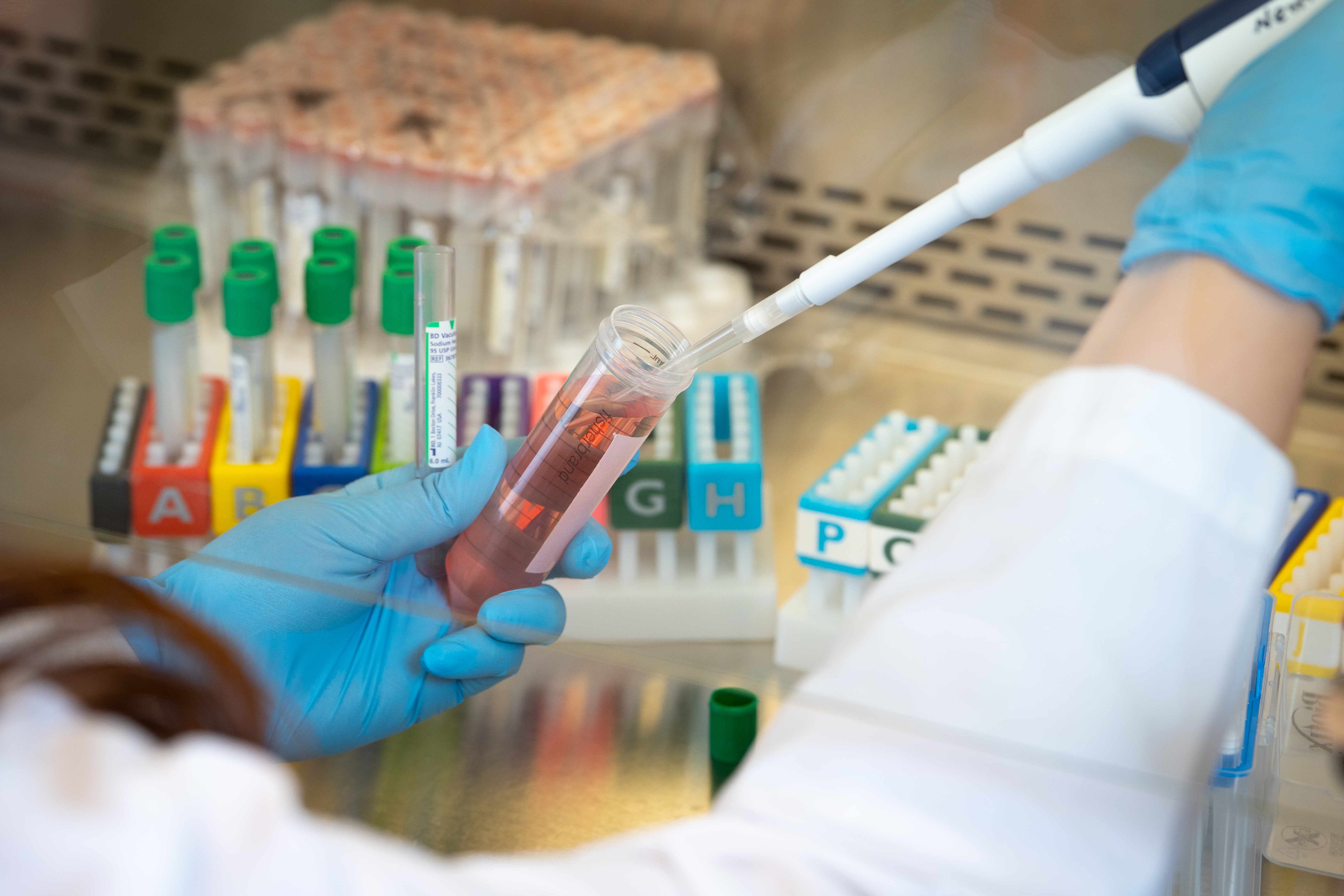
Predicting Preterm Birth Risk
by Dane Harter
A new blood test developed at The Ohio State University College of Nursing – in collaboration with The Ohio State University Wexner Medical Center – is the first of its kind to potentially predict the risk for preterm birth in early pregnancy, one of the leading causes of childhood death worldwide.
The test was developed after a team led by Shannon Gillespie, PhD, RN, FAAN, assistant professor at the College of Nursing and researcher in the Martha S. Pitzer Center for Women, Children and Youth, studied risk factors for preterm birth. These stressors included early life adversity, racial discrimination, chronic stress, poor sleep, depression and anxiety. They learned that these risk factors can affect the immune system over time.
Those dangerous changes to immune function can be measured with a blood test, using less than a teaspoon of blood. Initial experiments suggest that the test may be as high as 97.5% accurate, meaning that healthcare providers could use these results to guide care.
The World Health Organization reports that more than 15 million babies are born prematurely every year, and more than a million of them do not survive. Approximately 70% of cases of preterm birth happen spontaneously, usually for unknown reasons. Some populations are higher risk for preterm birth than others, again for unknown reasons. For example, Black mothers are about 1.5 times more likely to experience a preterm birth than white mothers.

This blood test can easily be added to the prenatal battery of tests that screen for conditions such as anemia, Gillespie said. Ultimately, her laboratory aims to prevent major complications of pregnancy and the postpartum period before a patient experiences a single sign or symptom.
Gillespie and her team are funded by a $2.3 million grant from the Eunice Kennedy Shriver National Institutes of Health/National Institute of Child Health and Human Development to put the new blood test through an expanded and comprehensive study of its accuracy in a large patient population. They are also working to identify ideal treatments to “reset” the body’s immune responses to levels expected to promote a healthy pregnancy and birth.
The innovative blood test has gained widespread interest and has been featured in national media outlets such as Forbes’ “Discovery of the Week,” Parents.com, Newswise and Medical Dialogues.
“It’s all about the patients and their families. They are my inspiration, my reason for persevering and staying committed to this pursuit of knowledge,” Gillespie said.
- Online Excellence
- Local Outreach: Helping Head Start
- DNP Nurse Executives
- Predicting Preterm Birth Risk
- Buckeye Inspiration: Teresa DiMeo
- In Memoriam
- Be the One
- The Great FLO Race
- Student Life: Briana Gordon
- Student Life: Cole Sullivan
- Celebrating the Class of 2025
- Grants Roundup
- Analyzing Fertility-tracking Technology Use
- Fuld Focus
- Alumni in Action: Diana Kupchella
- Water for Emotional Wellness
